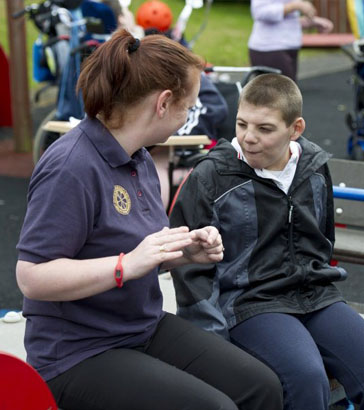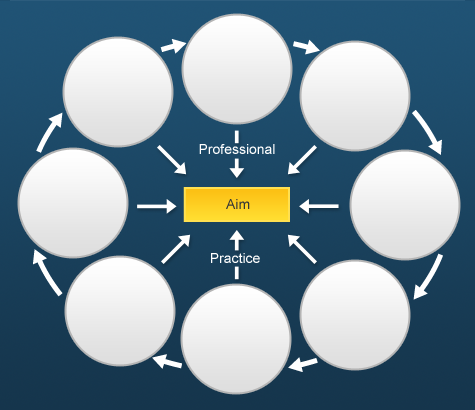
Detailed information on how to behave ethically in research can be found in the documents that are linked to in the previous resource entitled 'Ethics in research'.
In light of this, a number of key actions should take place before any research project begins:
- Approval of your research outline and planning through your school's Senior Leadership Team;
- Recorded assent/signed consent from participants. Vulnerable children and those under 16 years will need consent to take part from their legal guardian.
Before giving permission for your research to take place, your senior leadership team will need to know:
- Your research question;
- Why you are doing it;
- Who it will benefit and how;
- Whom you are planning to involve in the research;
- How you are planning to carry it out;
- Your expected time frame.
When carrying out research, it is regarded as essential practice to obtain fully informed assent/consent from all children (to the extent they can understand), and signed consent from their legal guardians for participation (particularly when they are under 16 years old or vulnerable).
'Fully informed' means having full knowledge about the research project and their rights (including the right to confidentiality and to withdraw from research at any time without prejudice) before making a decision about whether to take part in research.
The following sample project information and project statement sheets may be useful:

In education there is a large overlap between educators' everyday practice and research activity. To what extent would children and their guardians have a real choice to withdraw from research which explores best practice interventions for an individual or group of children, as this is part of a school's remit?
There is also an overlap between the information that is held about children and their families by the school, and additional information gained through research. The very nature of a school compromises the confidentiality usually promised to research participants. This context complicates matters because any research presentations that include information about individuals is likely to reveal each individual's identity from their known characteristics.
A policy decision needs to be made by a school's senior leadership team about how such issues and others like them can be reconciled. However, the following principles are still relevant:
- Children and guardians should have full information about any research they are involved in;
- Their rights and risks relating to the research should be made clear to them;
- They should have the opportunity to discuss and reach an acceptable solution over any issues which concern them.
Discuss with your line manager how the following documents created for other research projects could be adapted for use in your school and by you as a researcher.
Consider a child with SLD/PMLD/CLDD you might want to involve in research.
Think about:
- Their vulnerability;
- Their communication needs;
- Their support needs;
- How they can participate meaningfully;
- Your interpretation of their contribution.
In the following case study, a young woman with PMLD was judged to have given assent to being videoed.
Think of a child with SLD/PMLD/CLDD whom you work with.
Ethical practice is relevant all the way through your research project. There will be ethics associated with every stage.
- Research questions;
- Literature reviews;
- Research methods;
- Collection of evidence;
- Analysis and interpretation of evidence;
- Outcomes;
- Dissemination.
This is the 'Accessible Research Cycle' devised by Jones and Whitehurst (Jones et al, 2012).
Click on the different stages of the research cycle to find out what the ethical issues are for each stage.
- Is the research needed? Will the answer provide new knowledge?
- Is the research question achievable? Does it need to be refined?
- Will answering the question be of value to the children and young people in the research study or educators?
<< Return
What do you know about your area of research? It is important to have some knowledge of ideas that other people have had on your area of research and how they did their research so you can link your inquiry to what they have done.
It is very important that any material you quote from what you read is carefully referenced to the author and work that you got it from. This applies whether you use the exact words or whether you rephrase it. If you do not do this, it could be counted as plagiary or misattribution.
<< Return
One of the ethical rules of research is that the outcomes must be relevant and useful.
To make sure you have useful outcomes, you must be careful to choose the right way of finding out the information you need. If you do not, you will not be able to use the information you have found, and everyone's time and resources will have been wasted. You need to be able to explain why the research methods you have chosen are the right ones.
<< Return
As a researcher you have responsibilities to the participants involved. If your research involves children or vulnerable adults, you will need to gain 'fully informed consent' from their parents/guardians (eg social services in the case of Looked After Children) for their involvement. However, you will also need to gain consent or assent, too, from the participant too as far as they are able to give it.
You need to:
- Share with parents/guardians (eg social services if a young person is 'looked after')/participants the full details of the research to the extent they can understand;
- Support them to understand their rights and make sure they have opportunities to use them;
- Protect them from harm as a result of the research (eg emotional trauma; exposure of personal information; dangerous situations, etc.).
With young people with SLD/PMLD/CLDD, this is especially complex. You will need to take account of:
- Their vulnerability;
- Their communication needs;
- Their support needs;
- How they can participate meaningfully;
- Your interpretation of their contribution.
You might also need to gain others' permission for the participant's involvement (eg heads of relevant organisations, sponsors).
<< Return
One of the ethical rules of research is that the outcomes must be relevant and useful. Again, you need to choose the right ways of collecting your evidence so that you will be able to find out the answer to the research question.
The evidence you collect must also be 'valid' and 'reliable'.
It is important to protect the confidential information you have collected from Research Participants. You need to think carefully about the way you collect, store and archive it and how you share it in accordance with the Data Protection Act.
You have to make sure that you collect the information in an ethical way – that you do not make up (fabricate), conceal or change information (falsify).
It is important to note that if you plan to use photographic, video or audio evidence, you will need specific permission from parents/guardians for this.
<< Return
One of the ethical rules of research is that the outcomes must be relevant and useful. Again, you need to choose the right ways of interpreting your evidence so that you will be able to find out the answer to the research question. The ways you interpret the evidence must be 'valid' and 'reliable'.
For young people with SLD/PMLD/CLDD, it is especially important to check the interpretations you have made of their responses or behaviours with others who know them well.
<< Return
In sharing your discoveries, you need to make sure that you have permission from your research participants to do this.
One of the ethical rules of research is that you must share your findings so that others have the opportunity to extend their knowledge and improve practice. The report of your research also needs to be detailed enough to give others a chance to test it by careful reading or trying out the research for themselves.
There are a number of ethical rules around sharing research. These include:
- Correct naming of authors in order of greatest contribution to the research;
- Not sensationalising the research so that overshadows the academic perspective;
- Not leaving out information from the final report.
If you write up your research, you should not publish the same article in more than one journal.
<< Return
It is important that the outcomes of your research are relevant to your practice. It is unethical to carry out research for research's sake.
<< Return


What
do I
want to know?
How will I
apply it to my
practice?
What
has
been said
previously?
What
are the
possible ways to
investigate what
I want to
know?
How
can I
involve people
in my research
and enable their
informed
choice?
How
am I
going to gather
the information?
How
am I
going to make
sense of the
information
gathered?
How
am I
going to share
my discoveries?
How
do my
discoveries
relate to my
practice?

Jones, P. Whitehurst, T. and Egerton, J. (2012) Creating Meaningful Inquiry in Inclusive Classrooms: Practitioners' stories of research. London: Routledge College Press.